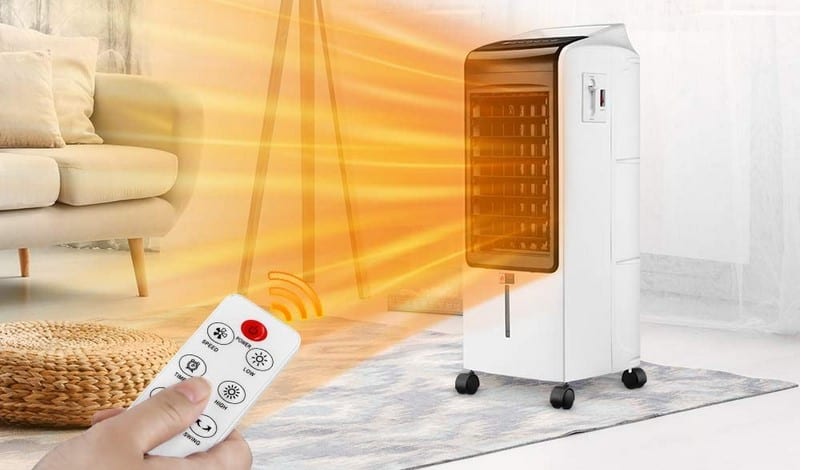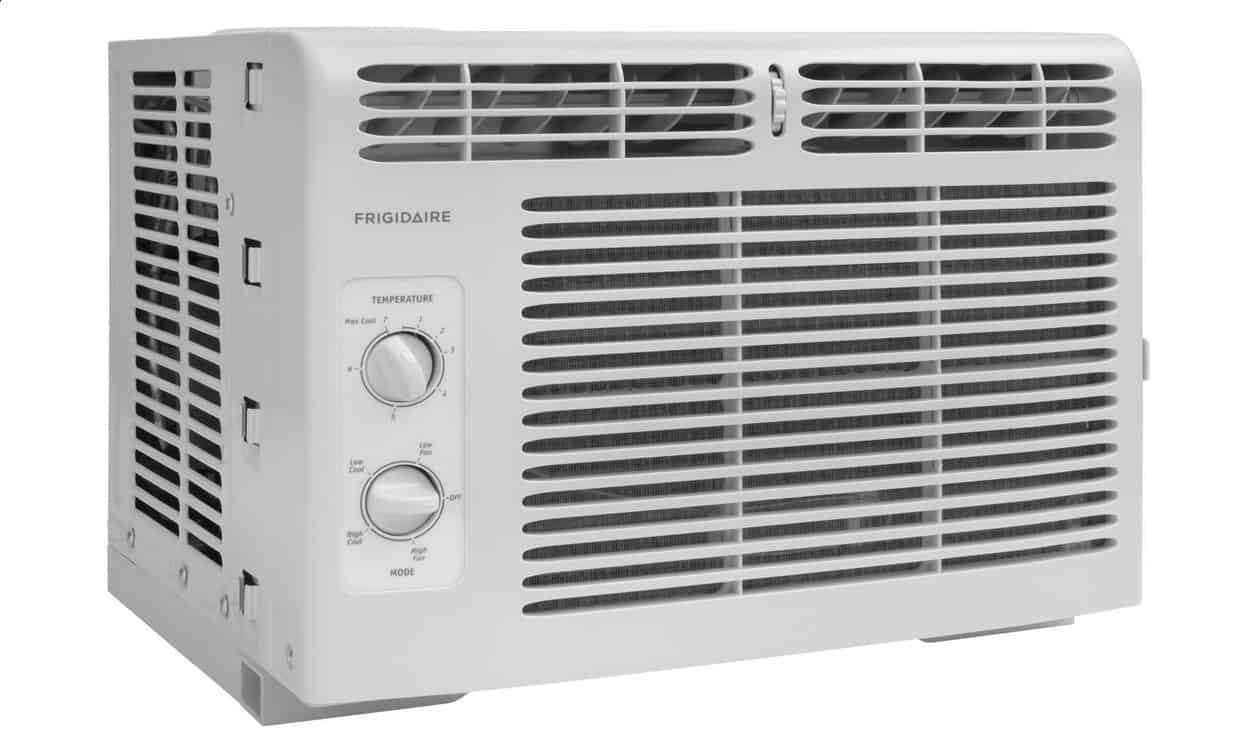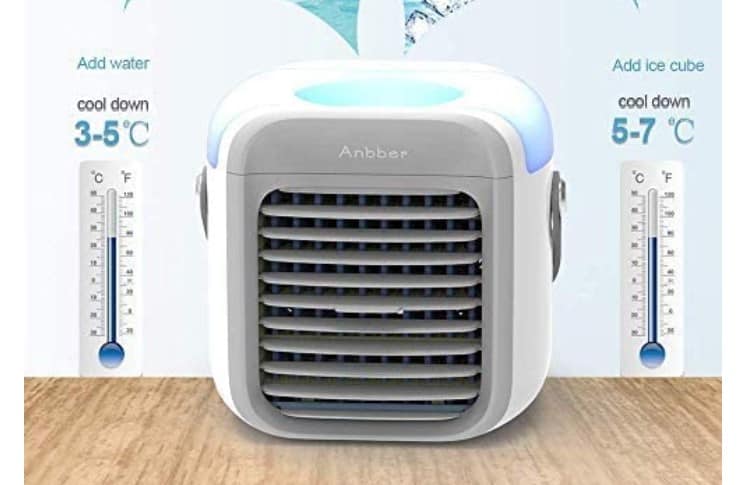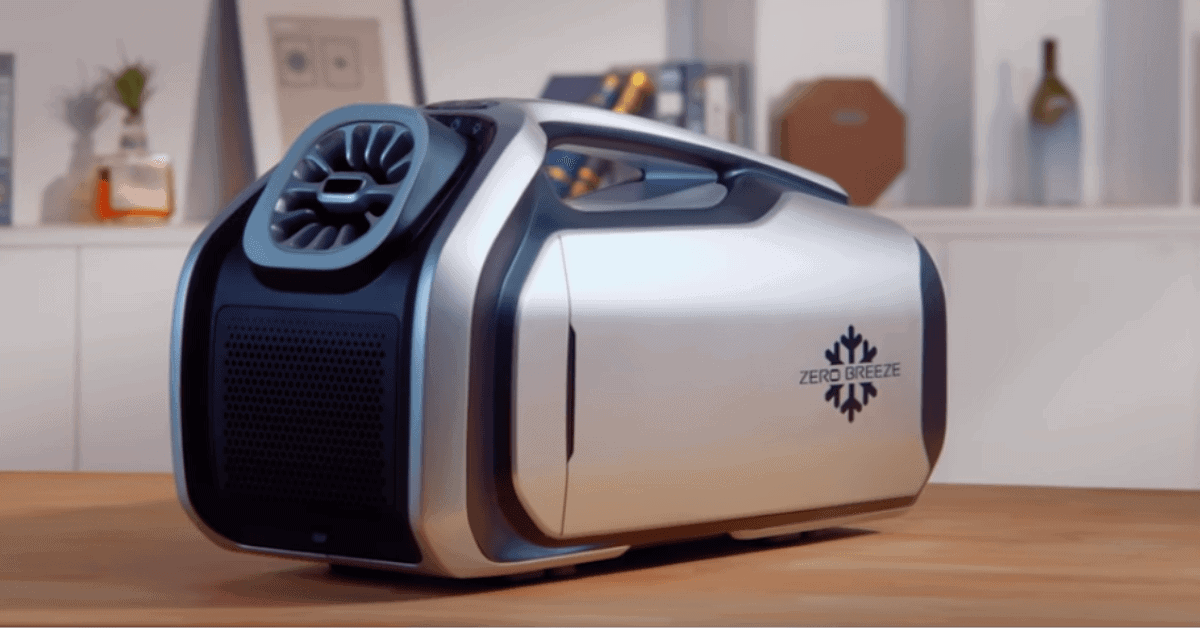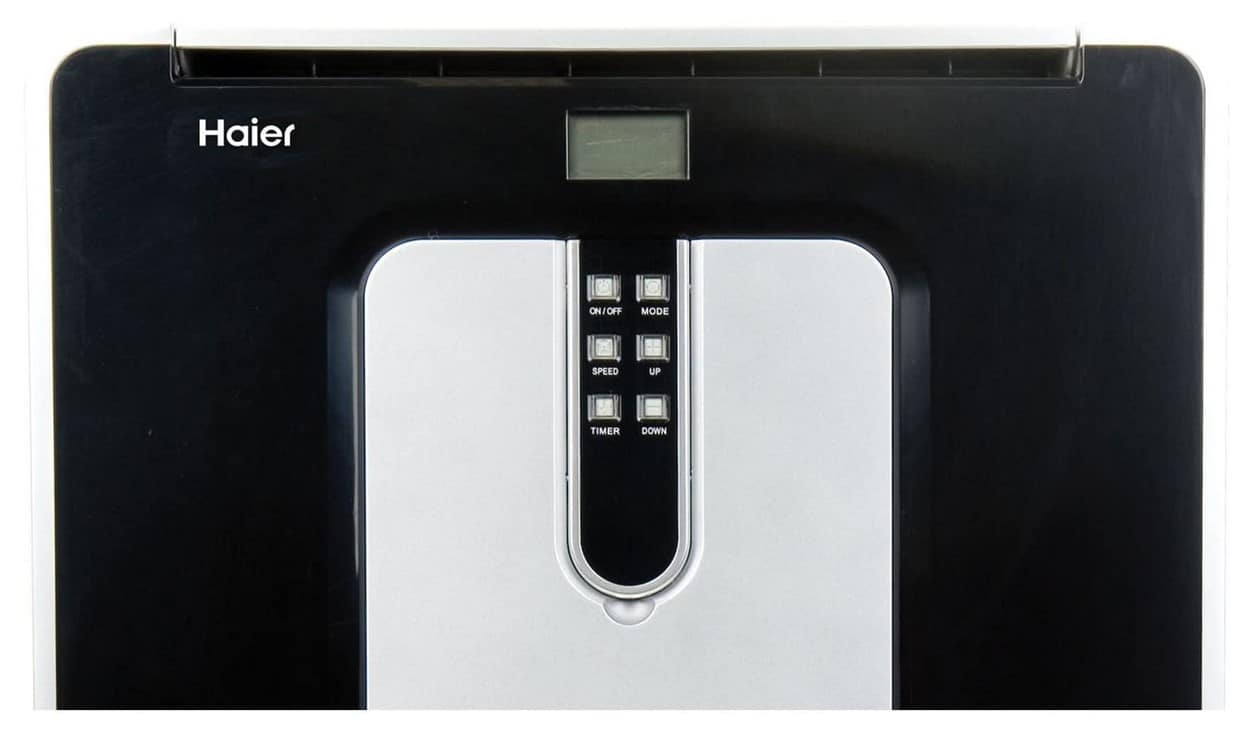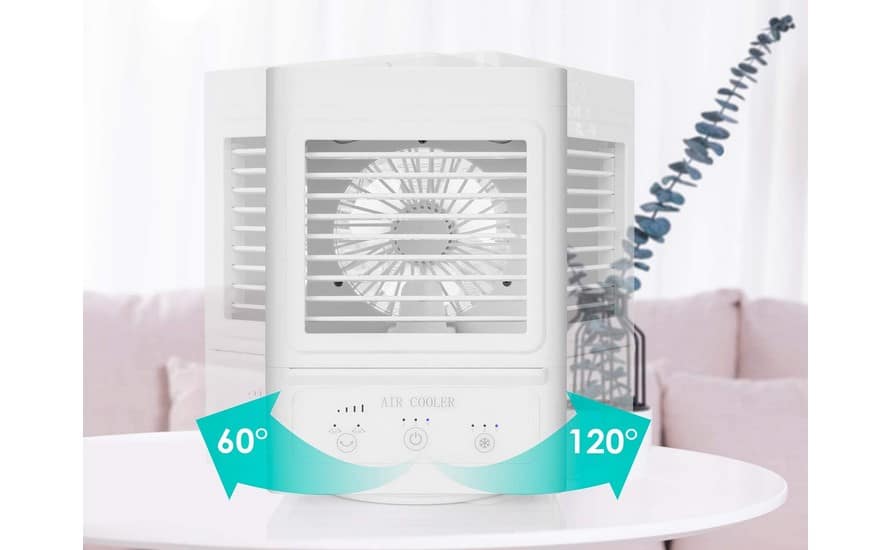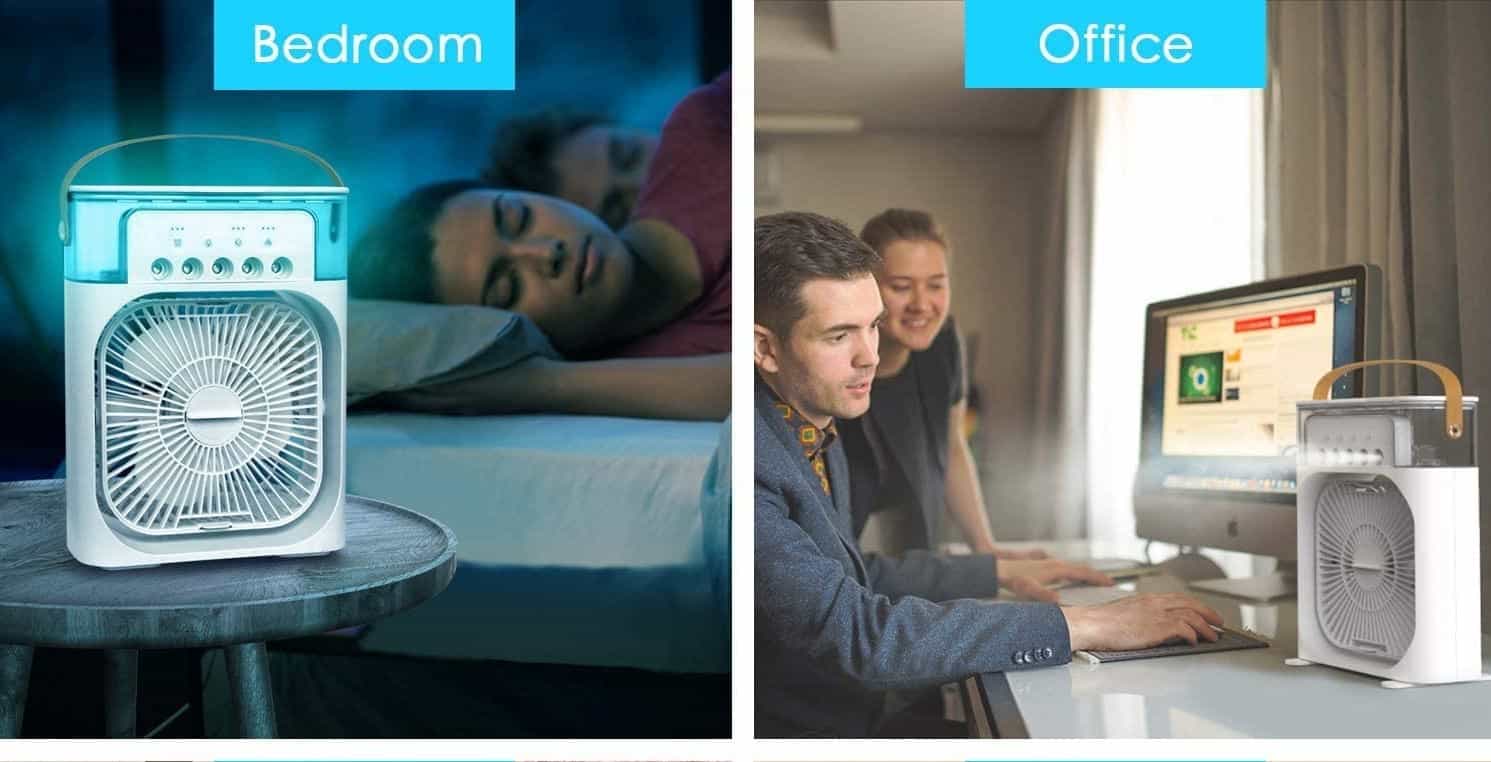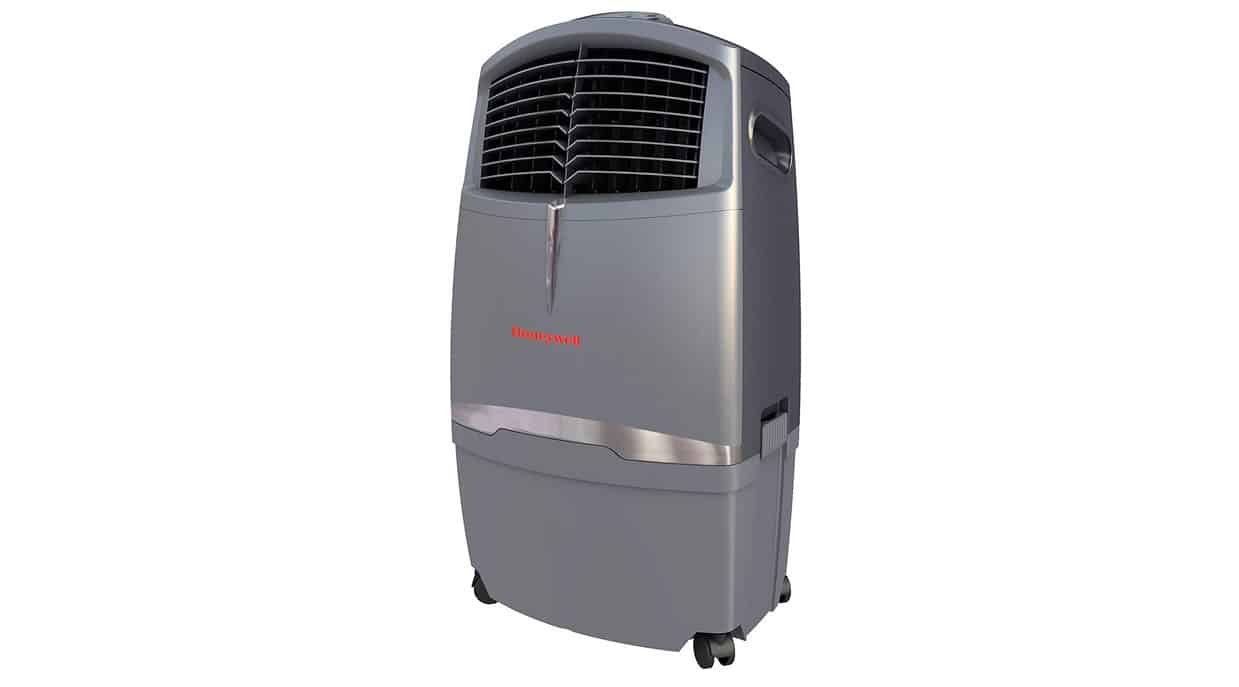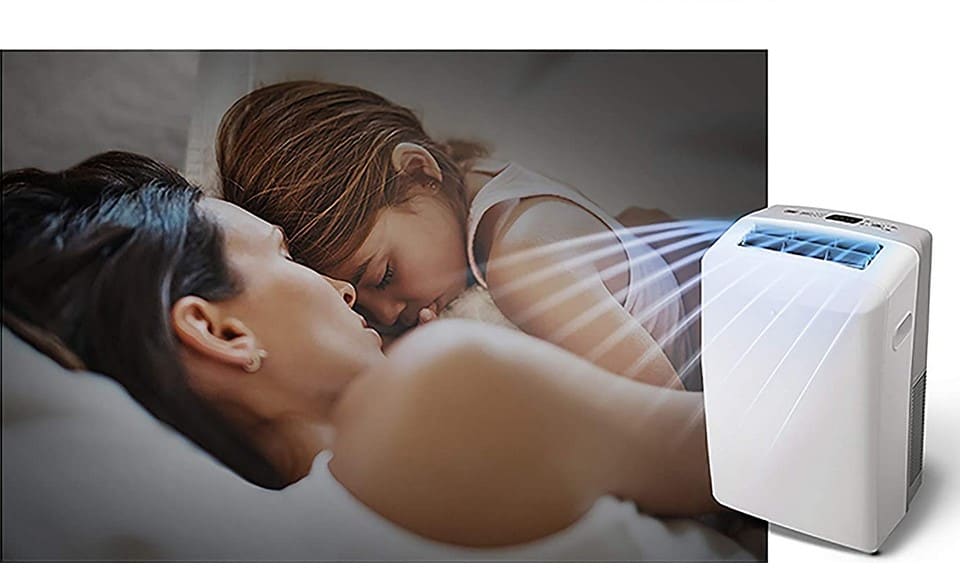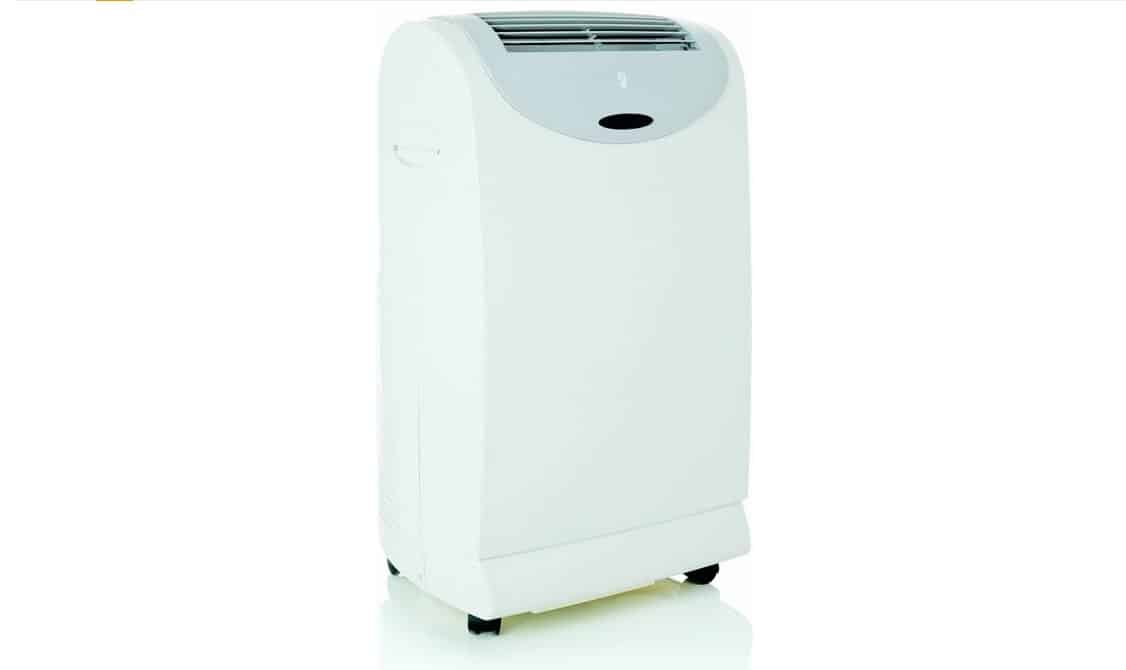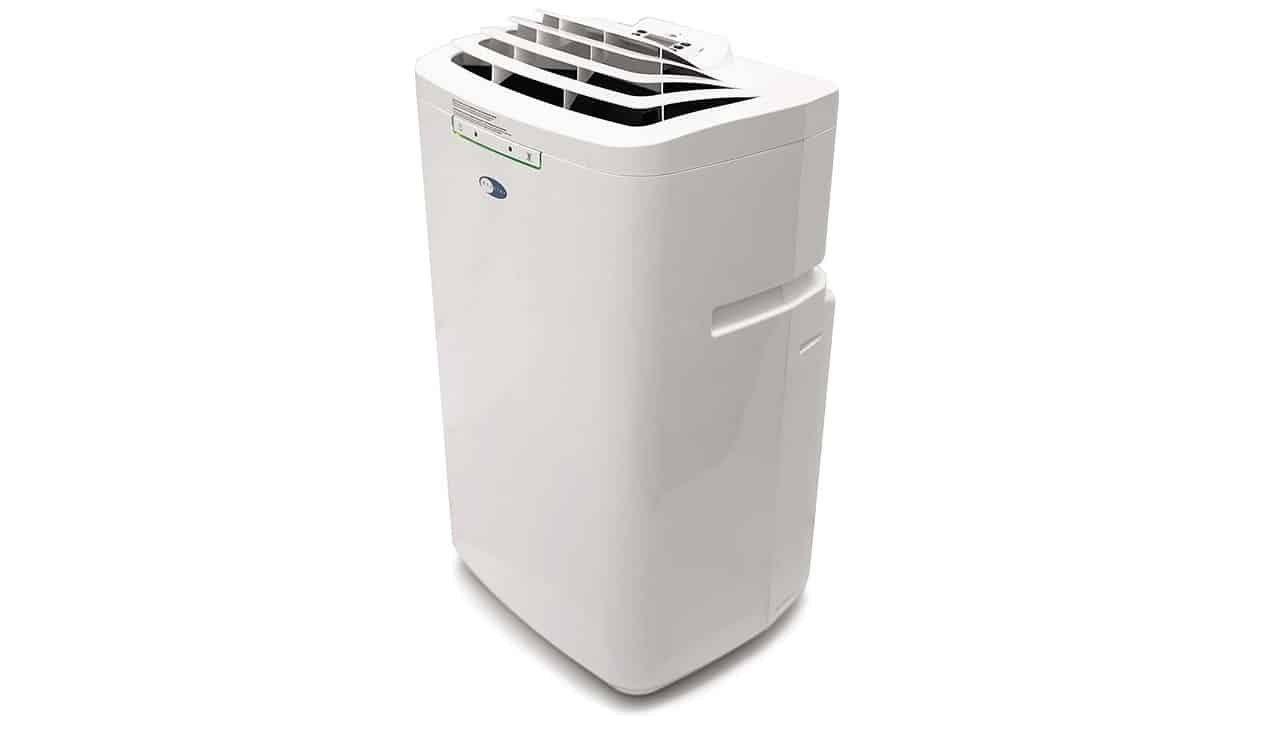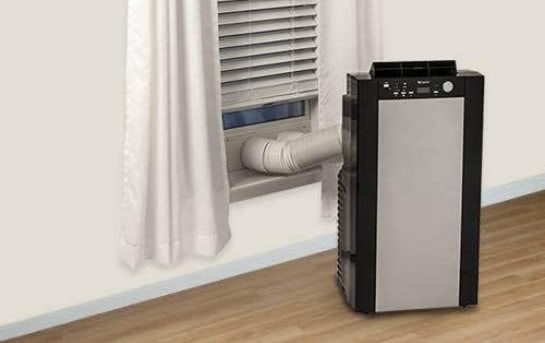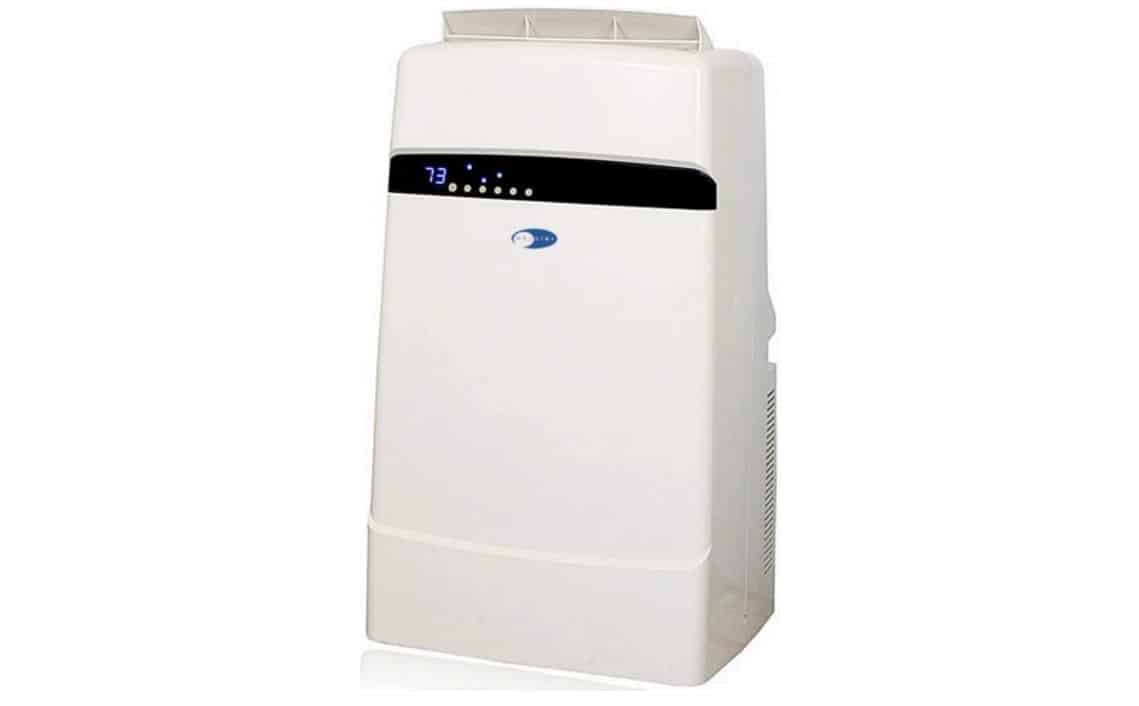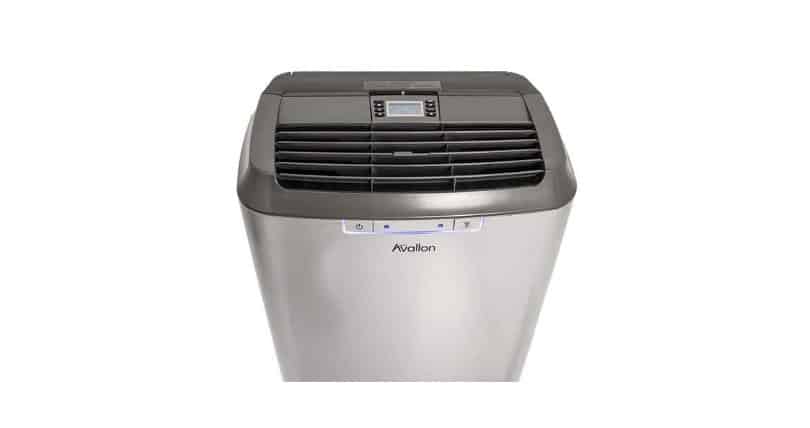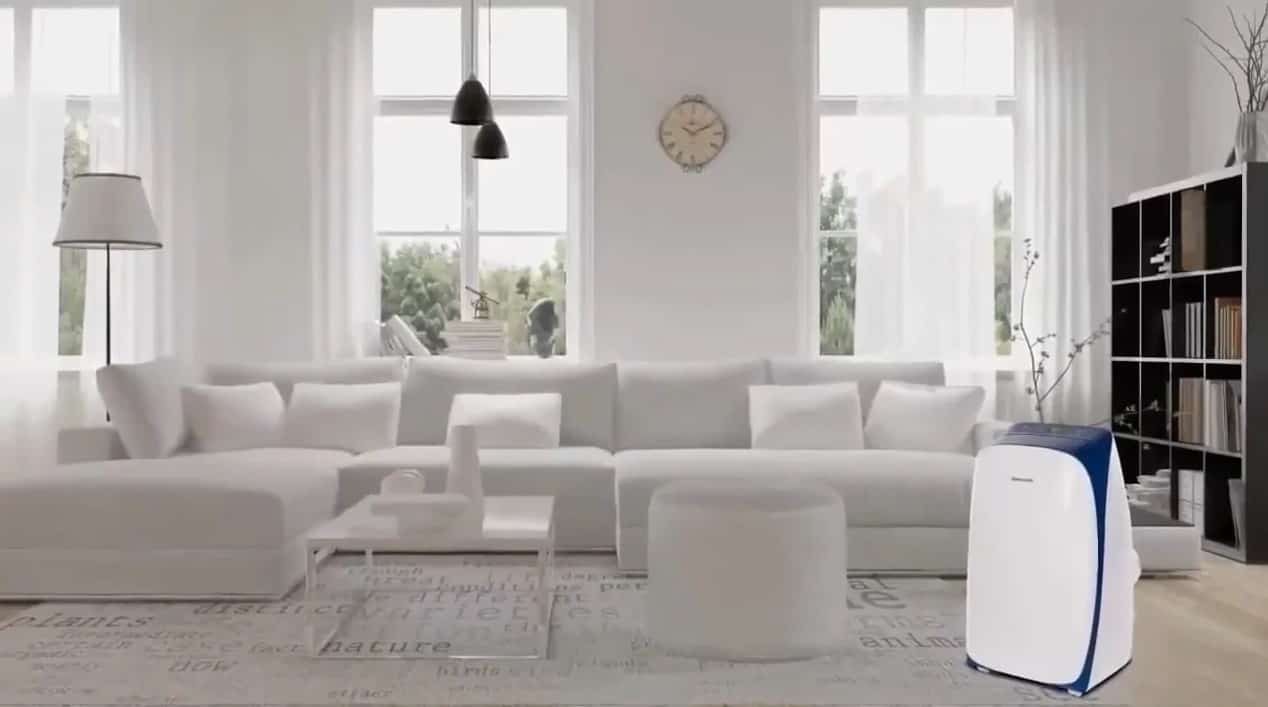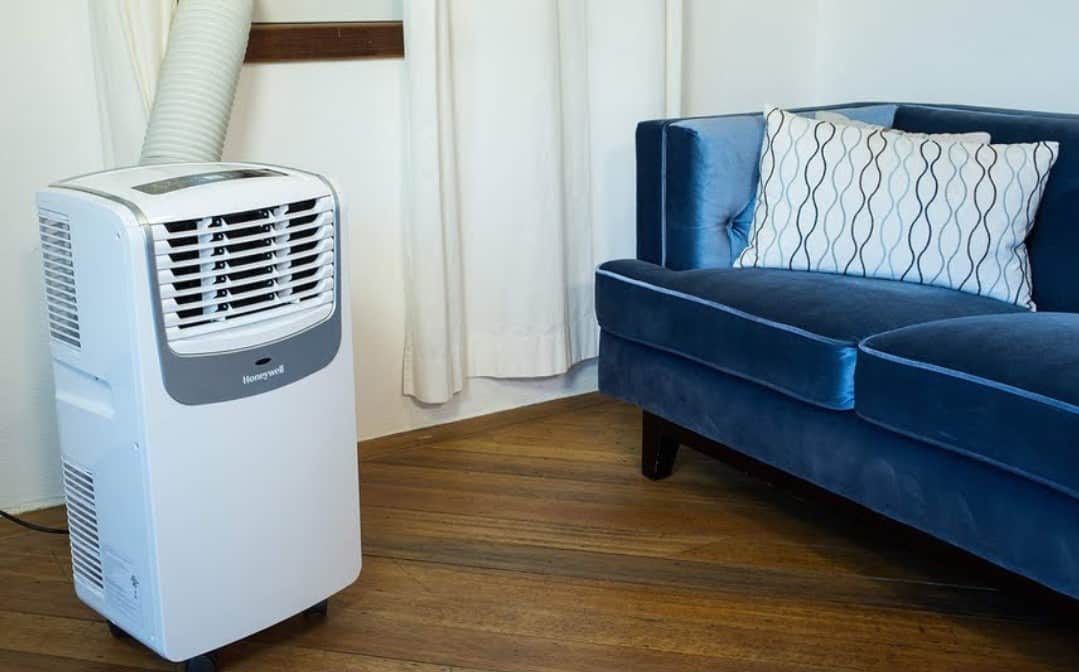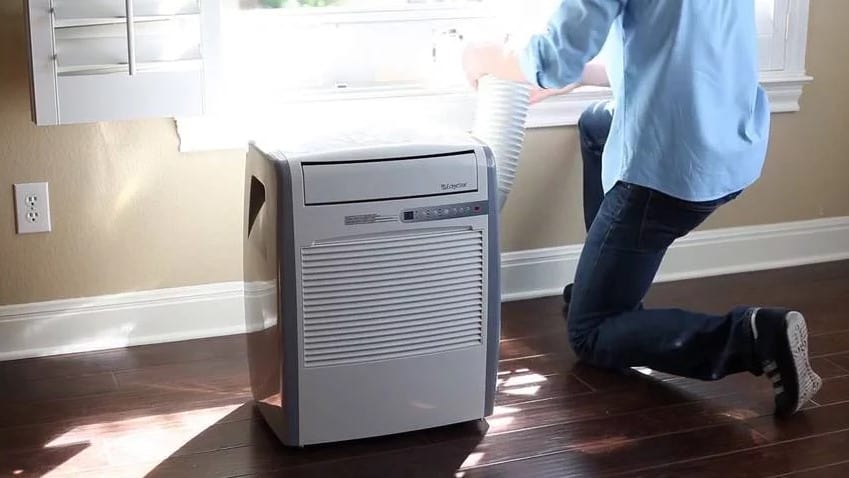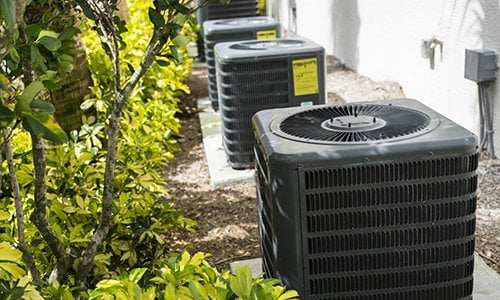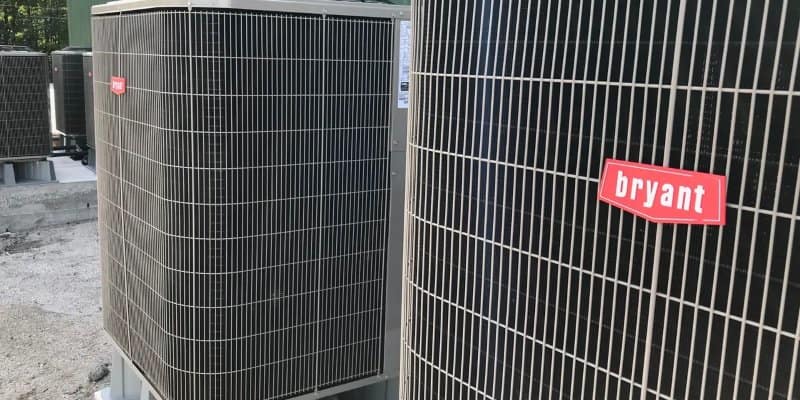Looking for the best air conditioners? The primary difference between a heat pump and an air conditioner is that a heat pump can provide heat, but an air conditioner cannot. So, a heat pump can both heat and cool a home. However, there are many other differences. When looking for the best Wi-Fi air conditioner, there are a lot of things to consider. If you didn’t already have a heat pump on your list of things to research, you should consider adding it, too.
Similarities
If you need to cool the indoor air in your home, both a heat pump and an air conditioner will work. They both work to remove the heat energy from your home, using auxiliaries like an evaporator coil and heat strips to be more productive. You might think they produce cold air to cool your home, but that’s not true at all. And, with the inclusion of a vane control air conditioner, you can direct where the cold air needs to go.
For other unique A/C units and brands, you’ll want to read our comparison articles such as the Carrier mini-split vs Mitsubishi and the Bryant vs Comfortmaker air conditioners.
It would be challenging for an average person to tell the difference between the outdoor unit of an air conditioning unit vs. a heat pump unit. In cooling mode, they’re nearly identical in efficiency, energy cost, and operation.
Differences
The difference comes into play in heating mode. Air conditioners don’t have a heating mode, but heat pumps do. A heat pump has a reversing valve that allows it to absorb the heat energy from the air outside, even when it’s cold, and release it into the home. If an A/C has a heating feature, it can be known as a reverse cycle air conditioner.
Cost
A heat pump has a cheaper indoor unit than an air conditioner, but the outdoor unit can be much more expensive. If you need both heat and fresh air, however, a heat pump can do both. If you choose a central air conditioning unit, you would also need to factor in the price of a furnace.
Energy Efficiency
Heat pumps use electricity to provide energy-efficient heating, and they work well when the cold air outside isn’t too extreme. They cost much less oil, propane, or natural gas in conditions like these. However, as the temperature outside drops, your heat pump works harder and could increase your electric bill quite a bit.
When cooling, your ac unit and your heat pump have high SEER ratings, which can provide excellent cooling when there is warm air outside. High SEER ratings mean more energy efficiency. Ductless mini-split heat pumps are particularly efficient.
Ductless Options
Rather than a central air conditioner or a traditional heat pump, you may want to consider ductless mini-split air conditioners or ductless heat pumps. These energy-efficient options are less prone to problems than a window unit.
Longevity
Many different factors contribute to how long your HVAC system, air conditioning unit, or heat pump lasts. AC units and HVAC systems last longer than heat pumps, but they share the load. Heat pumps function for both heat and air and are in operation all year long.
It’s also possible that while your air conditioner is not in use during the colder months, it may become inoperable from lack of use. Come spring when you want to turn it back on, you may need a little maintenance to get it back up and running.
Both are great options but come at various prices. Your climate, the size of your home, and your specific needs will dictate which is best for you.
Related Articles:

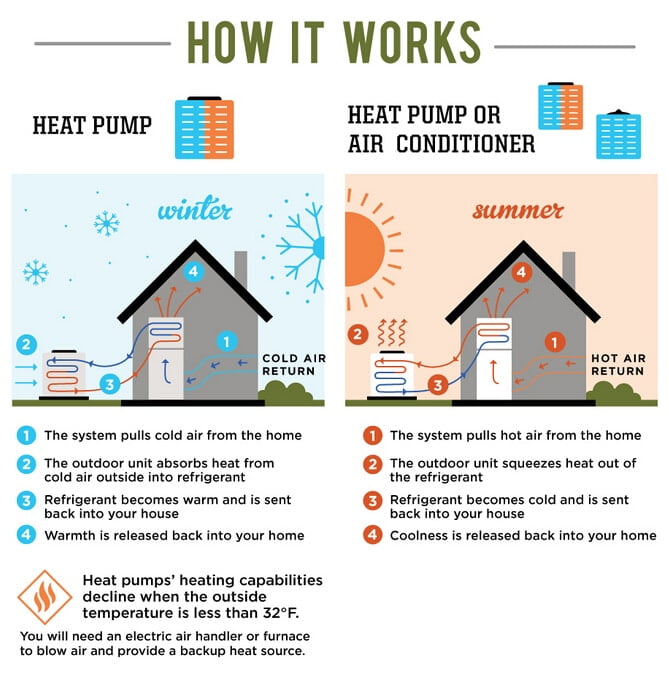













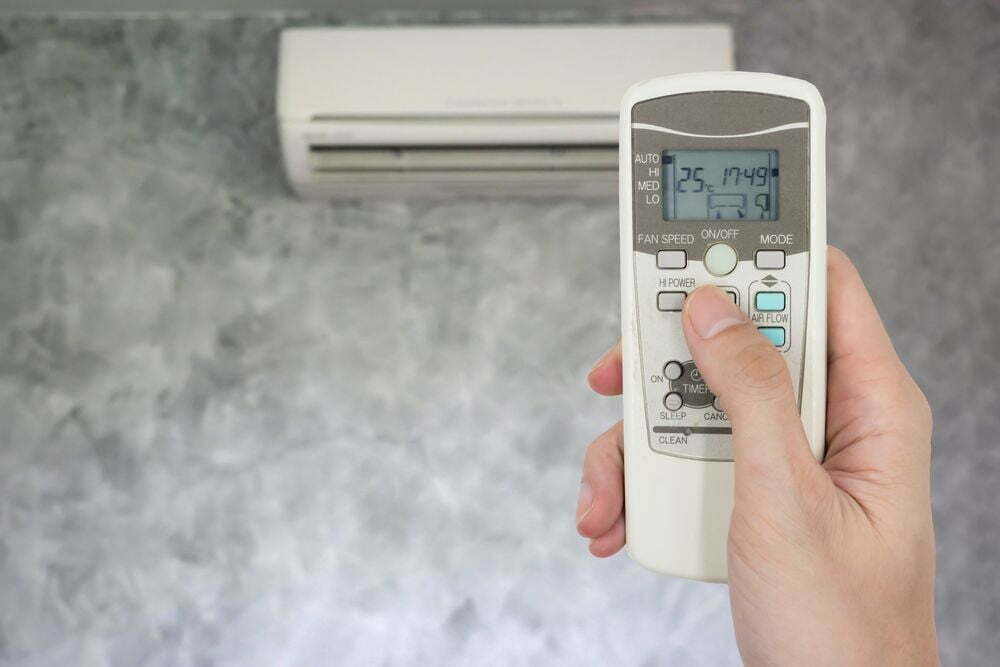
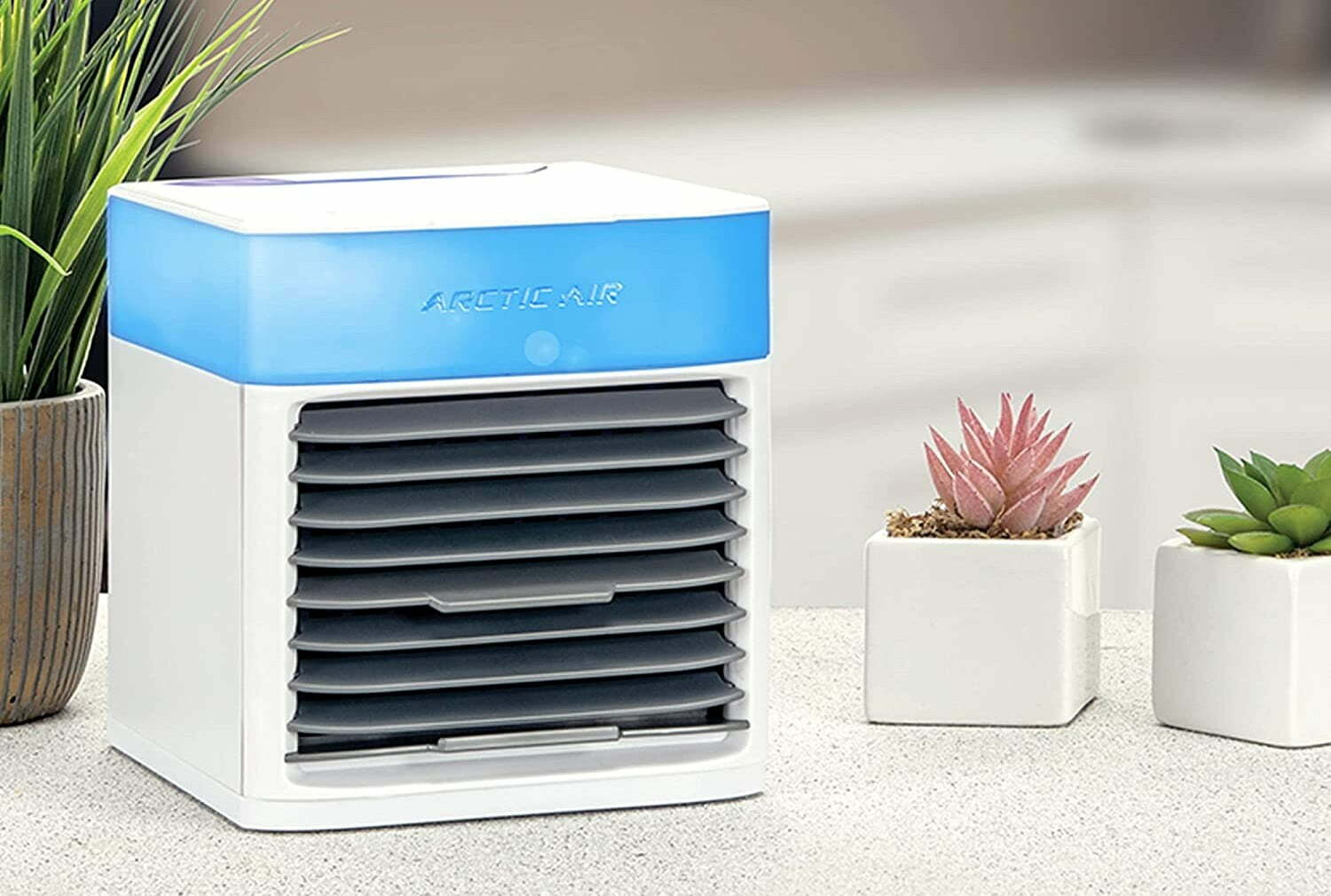
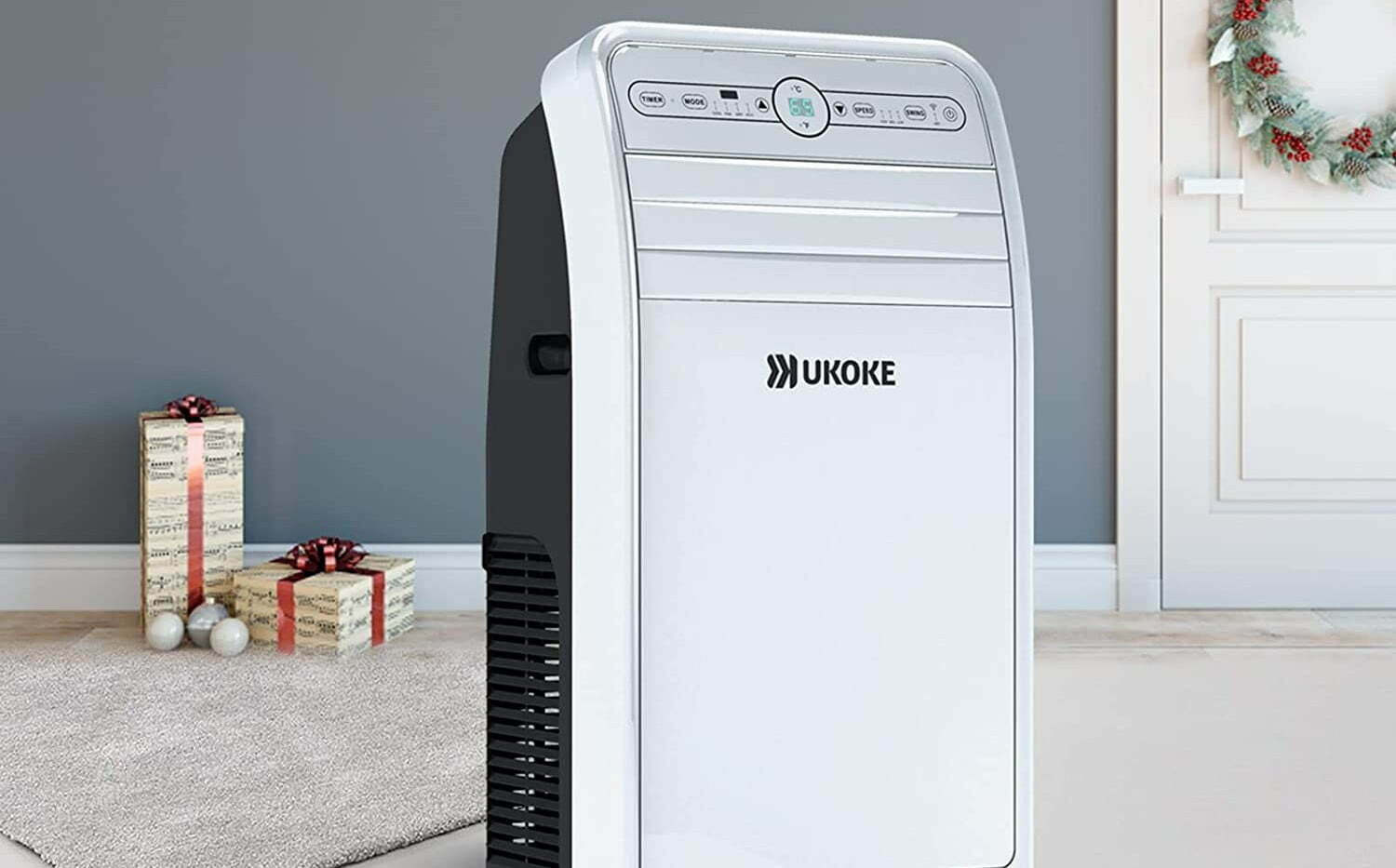
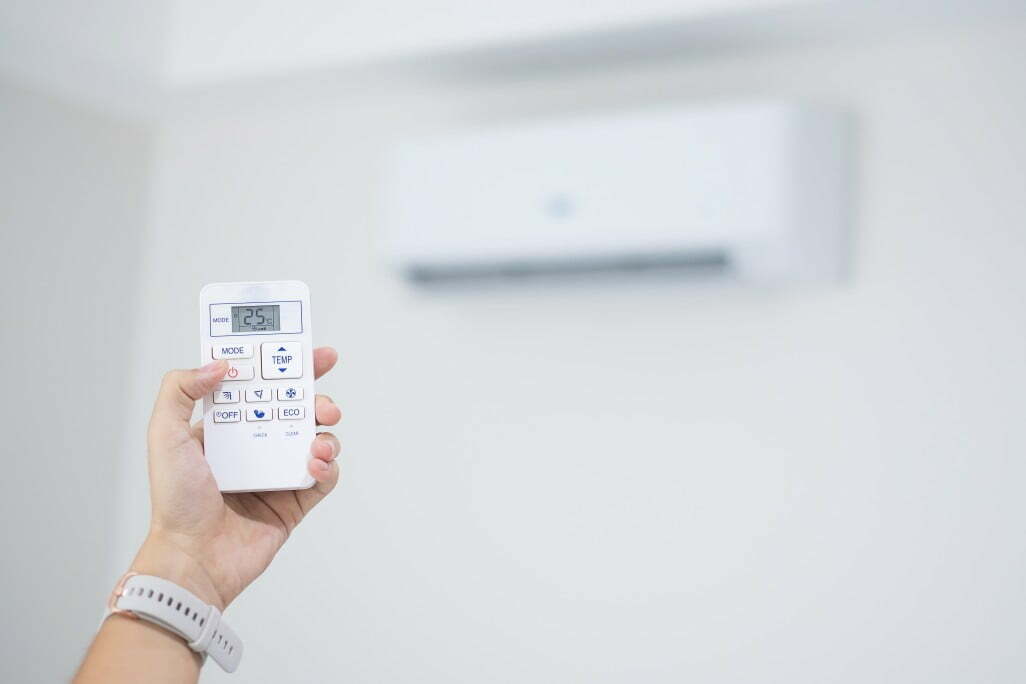
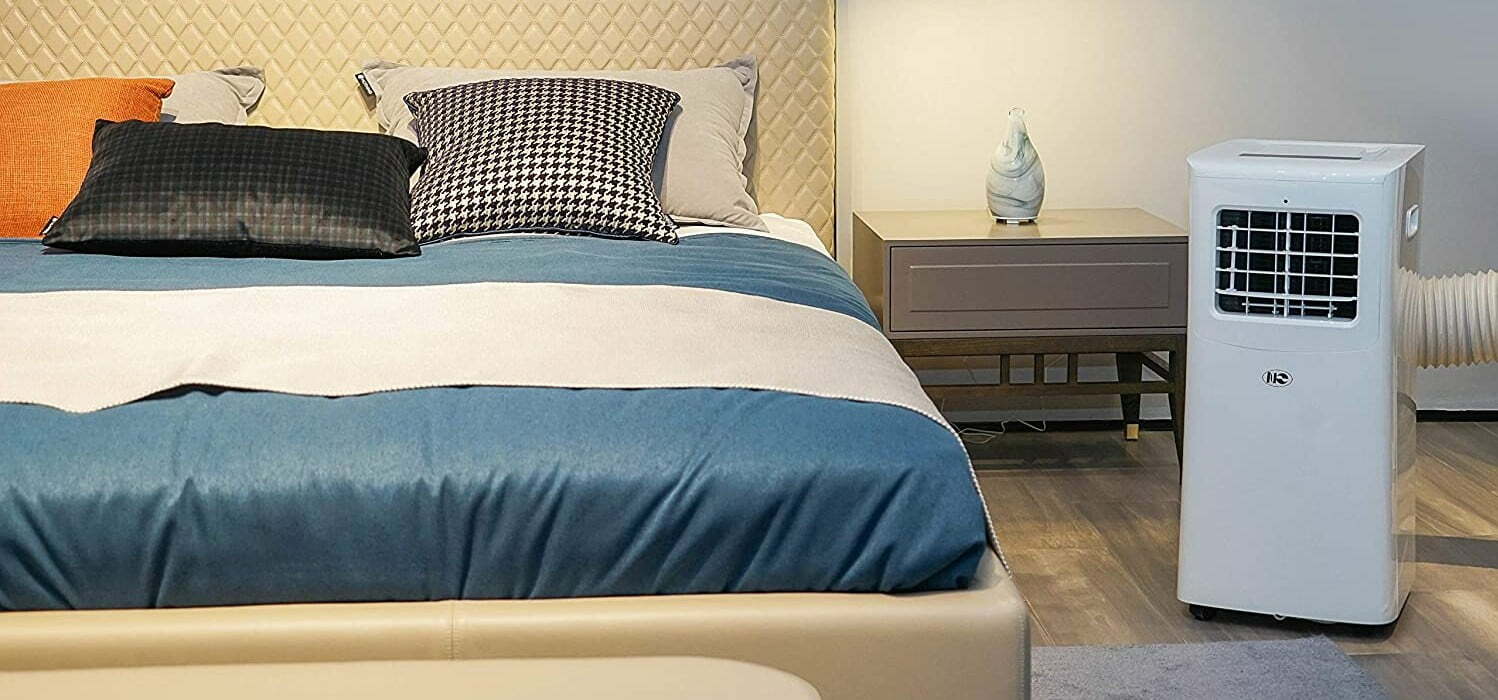
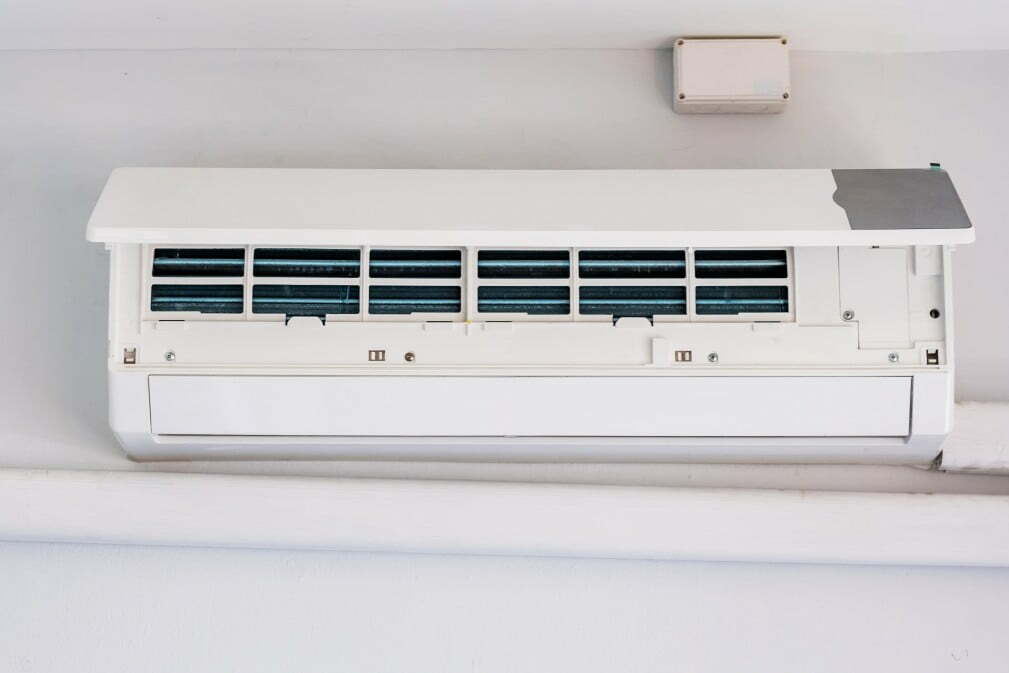
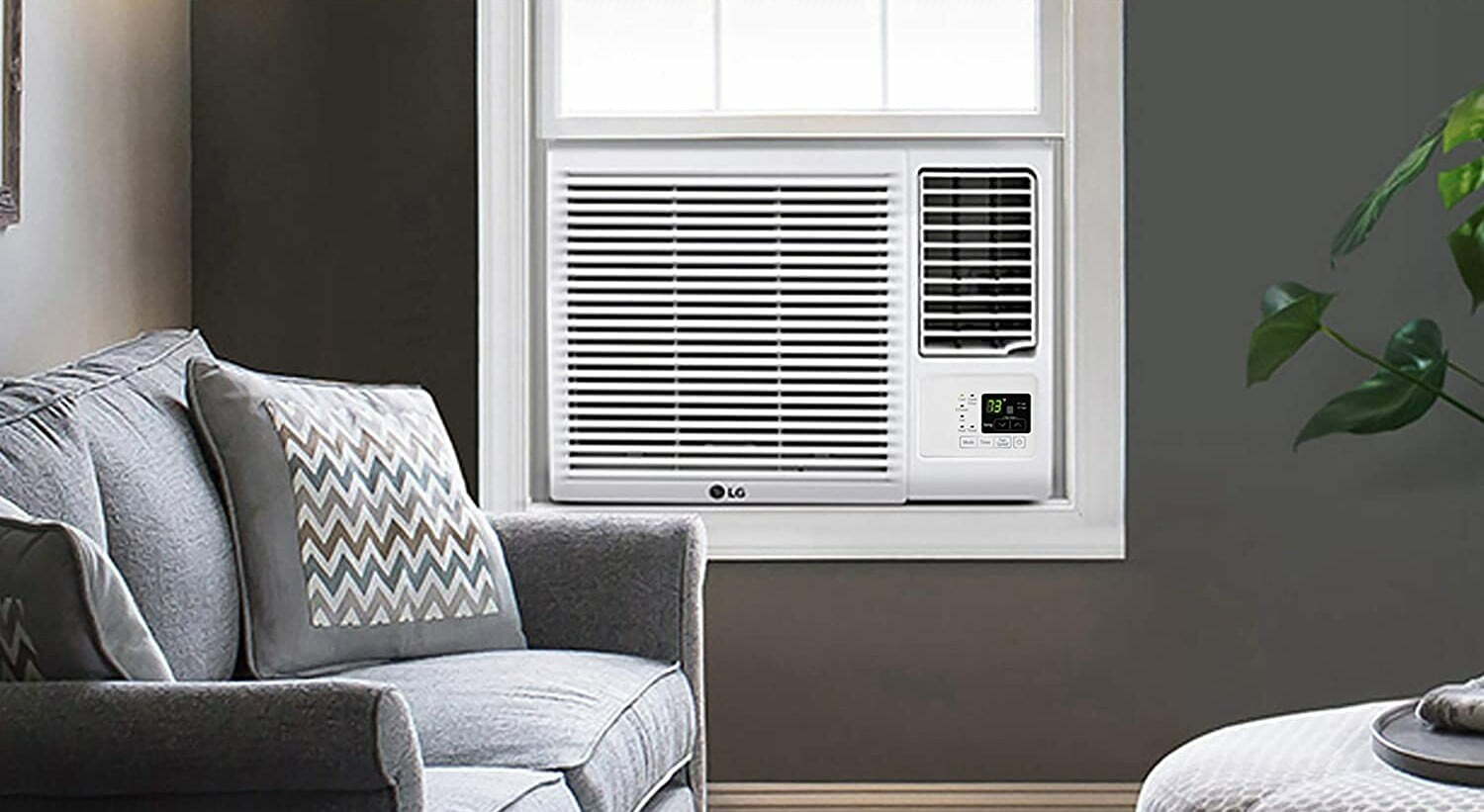
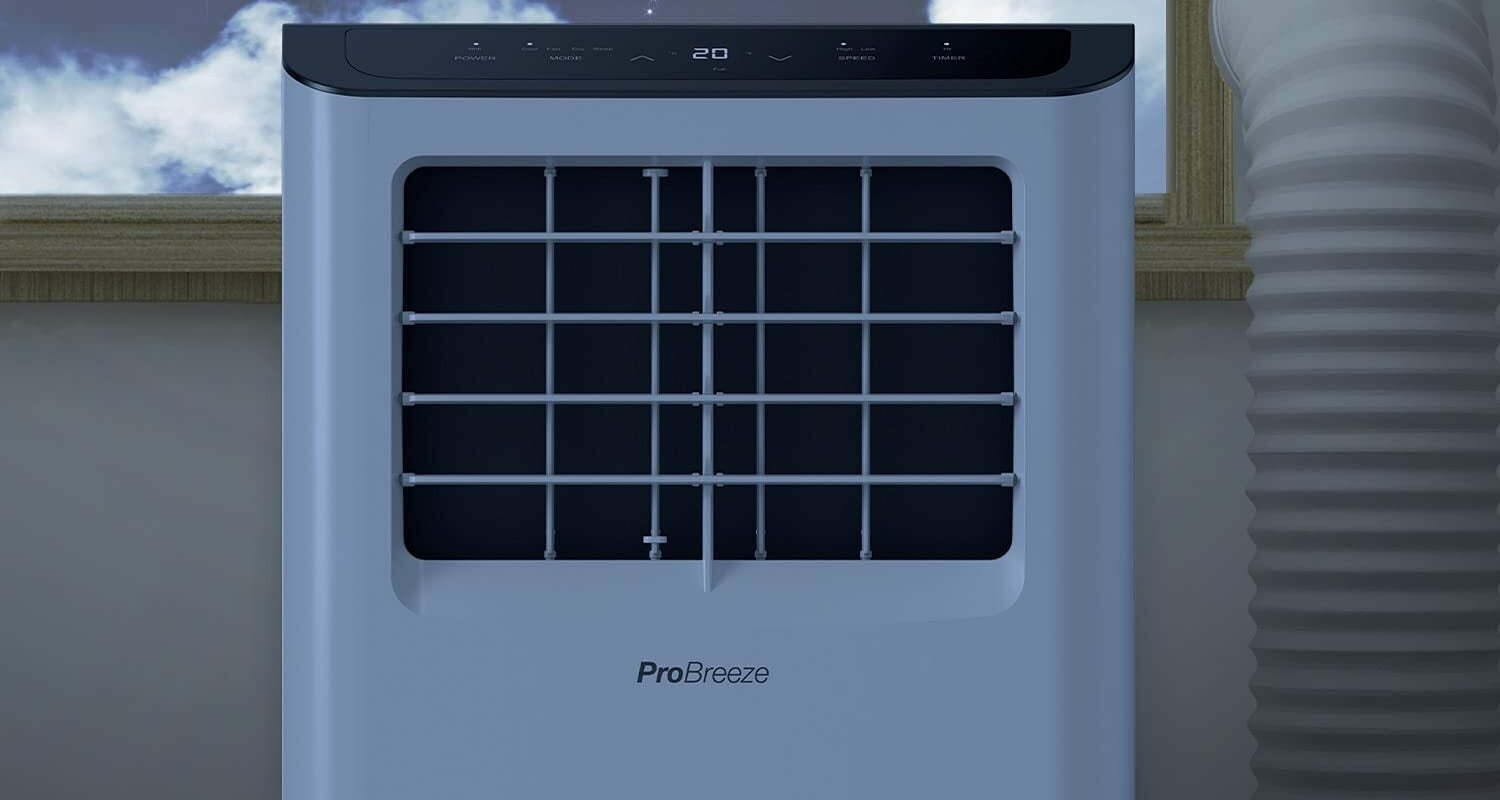
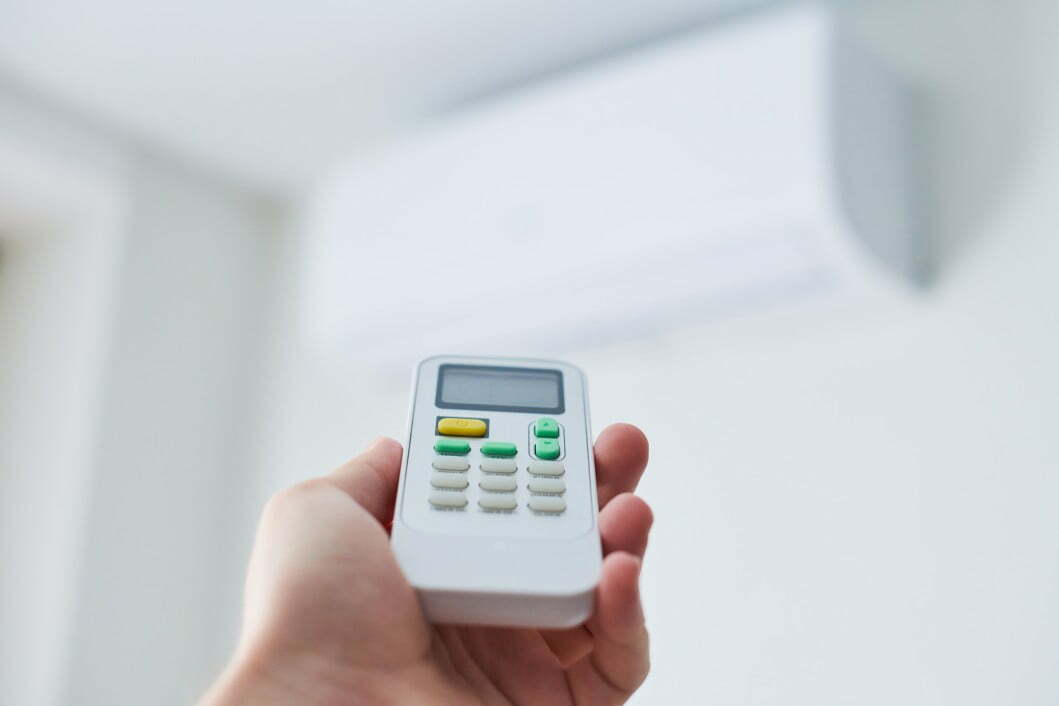
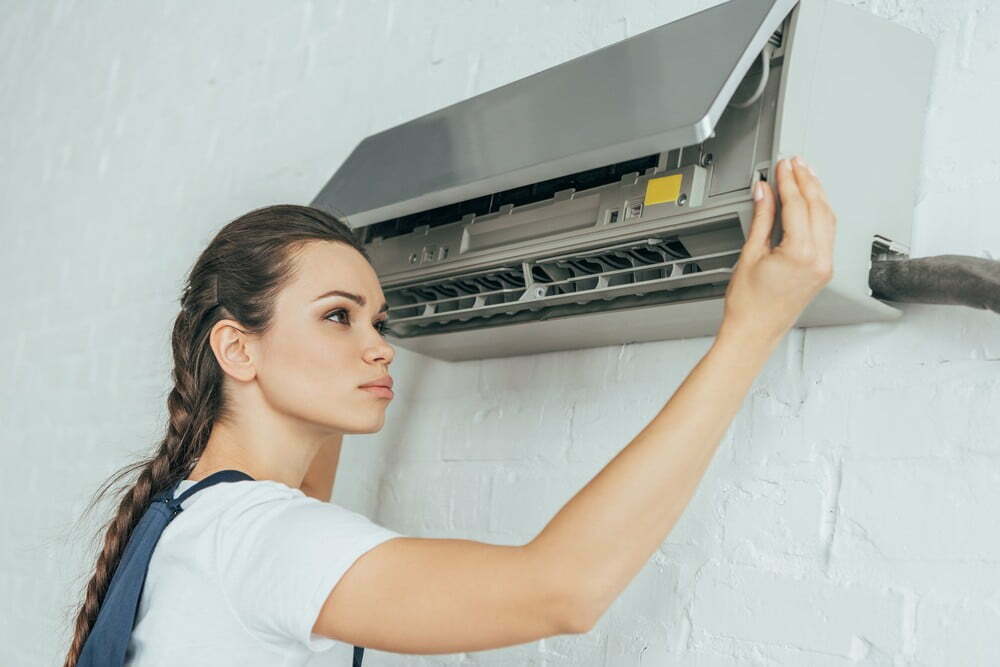
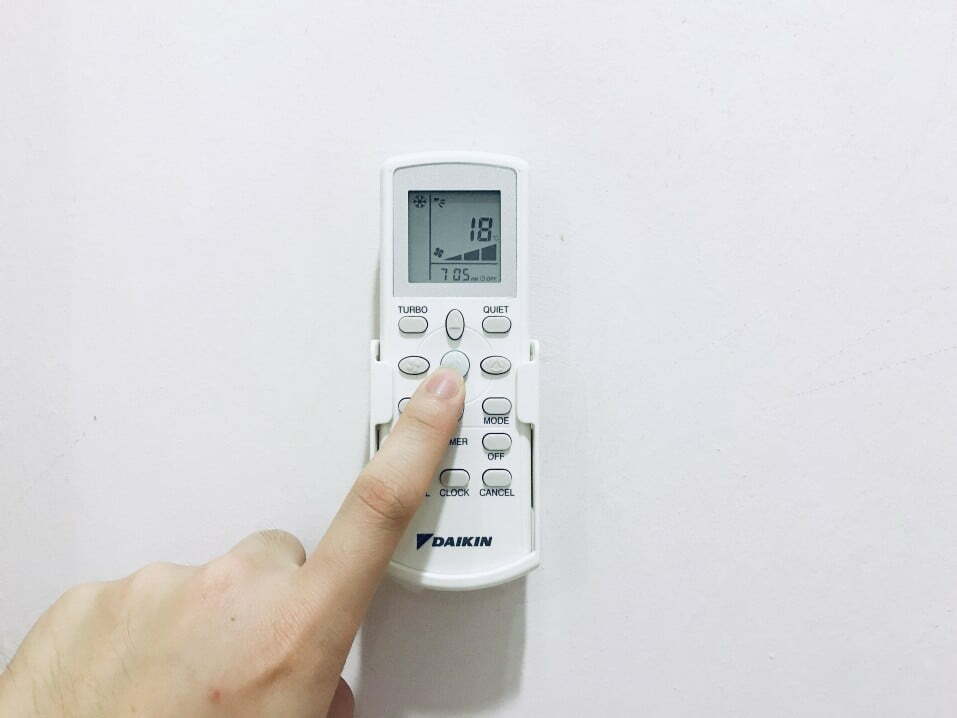
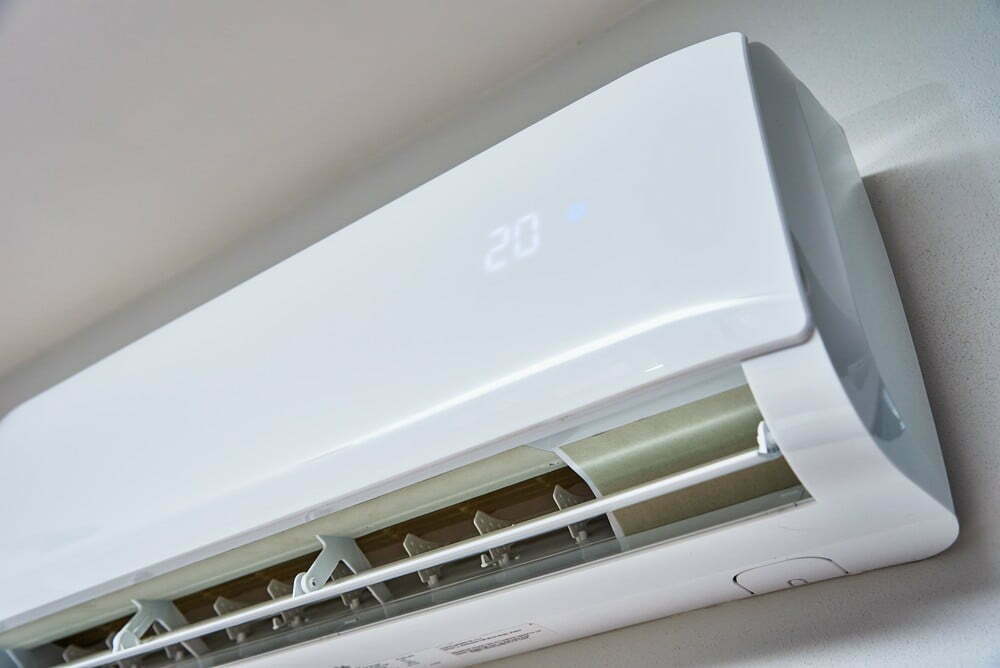
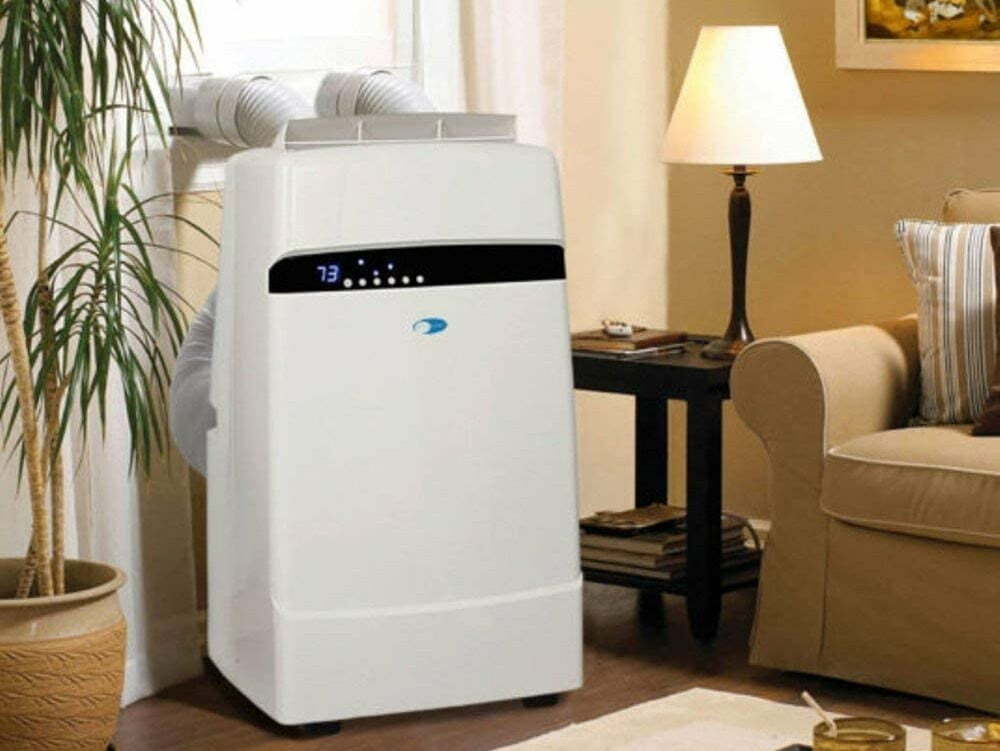
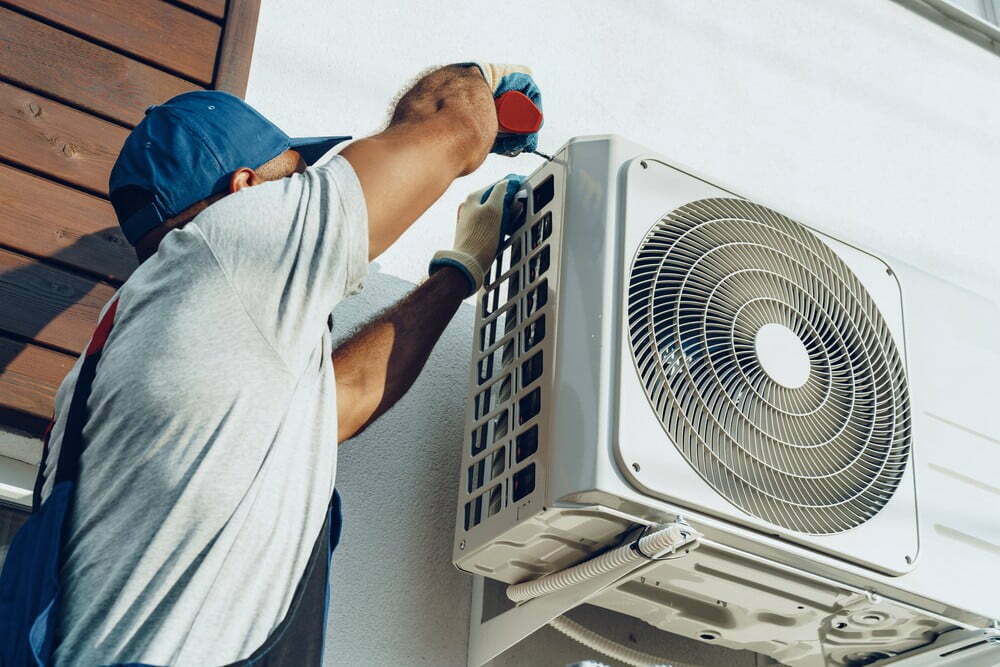
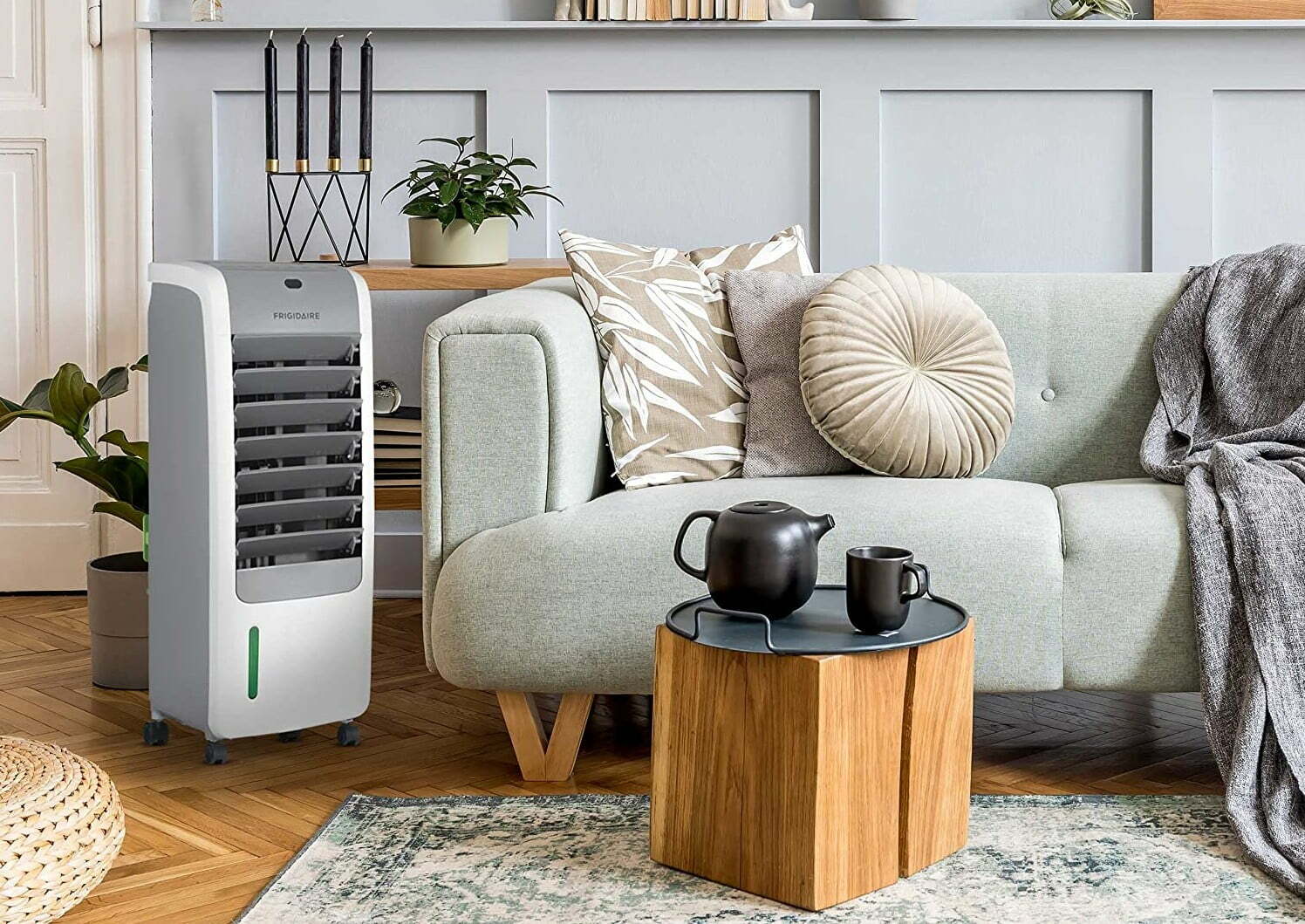
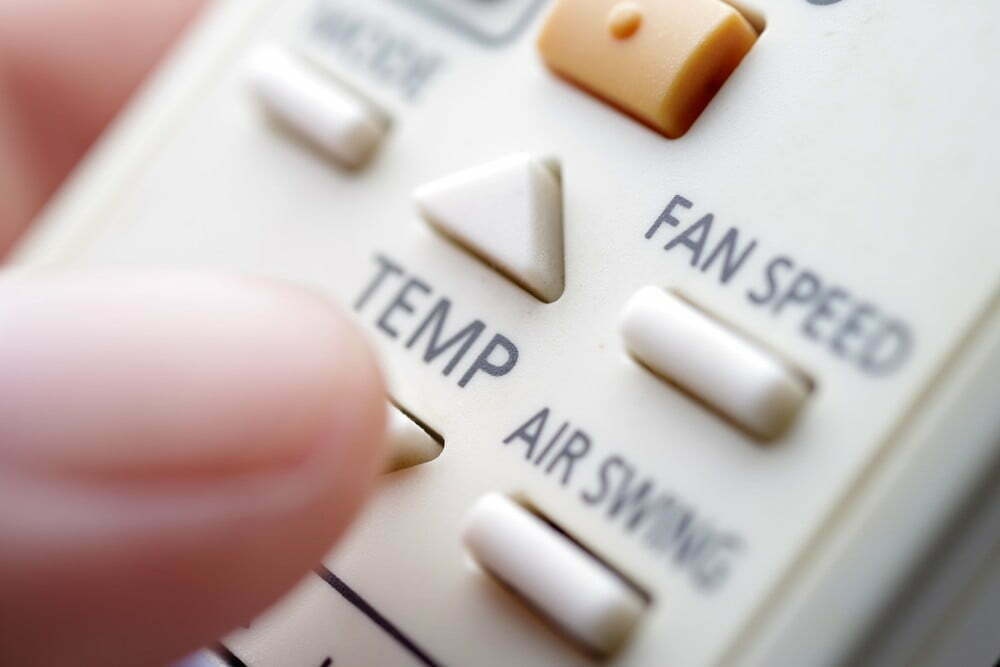
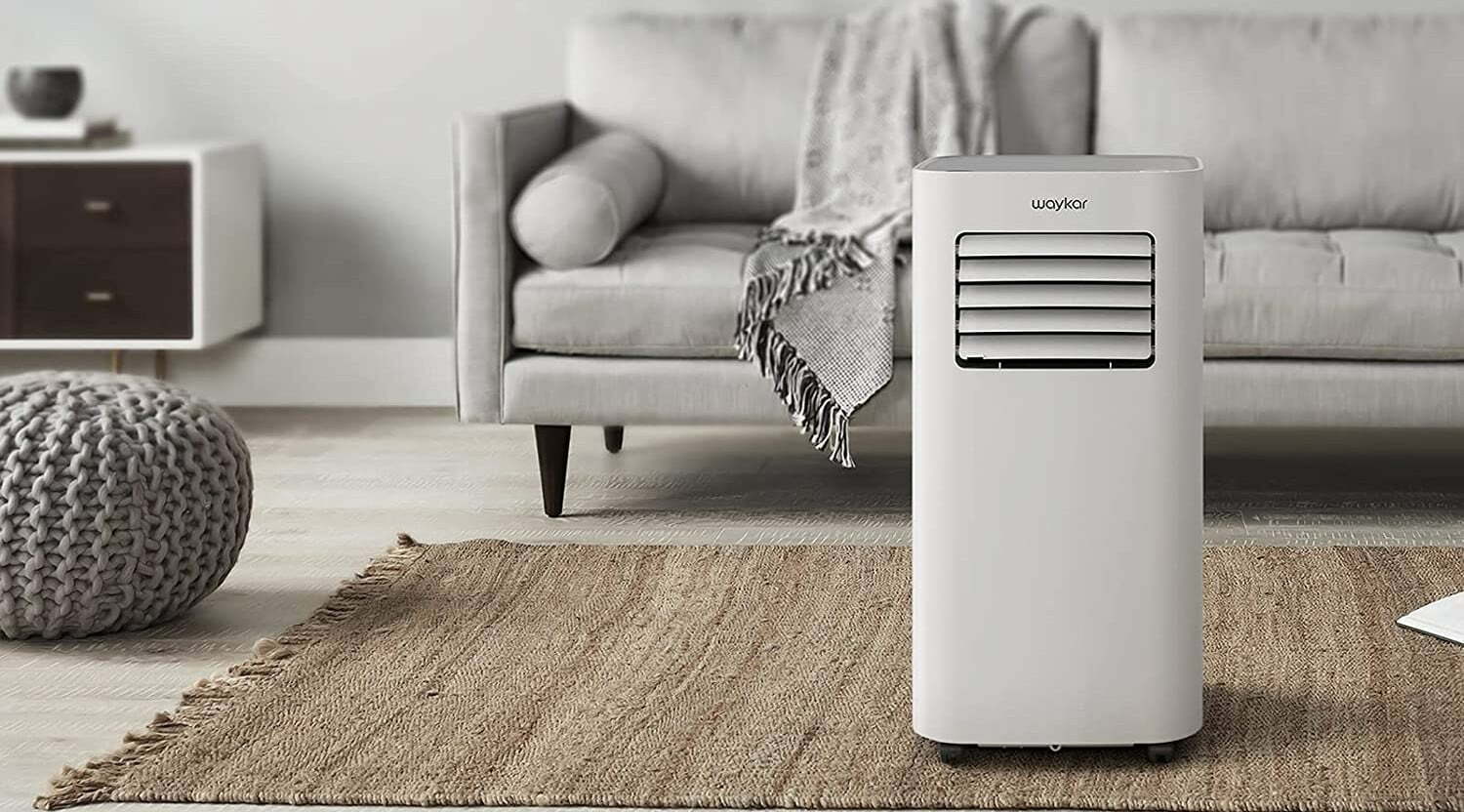
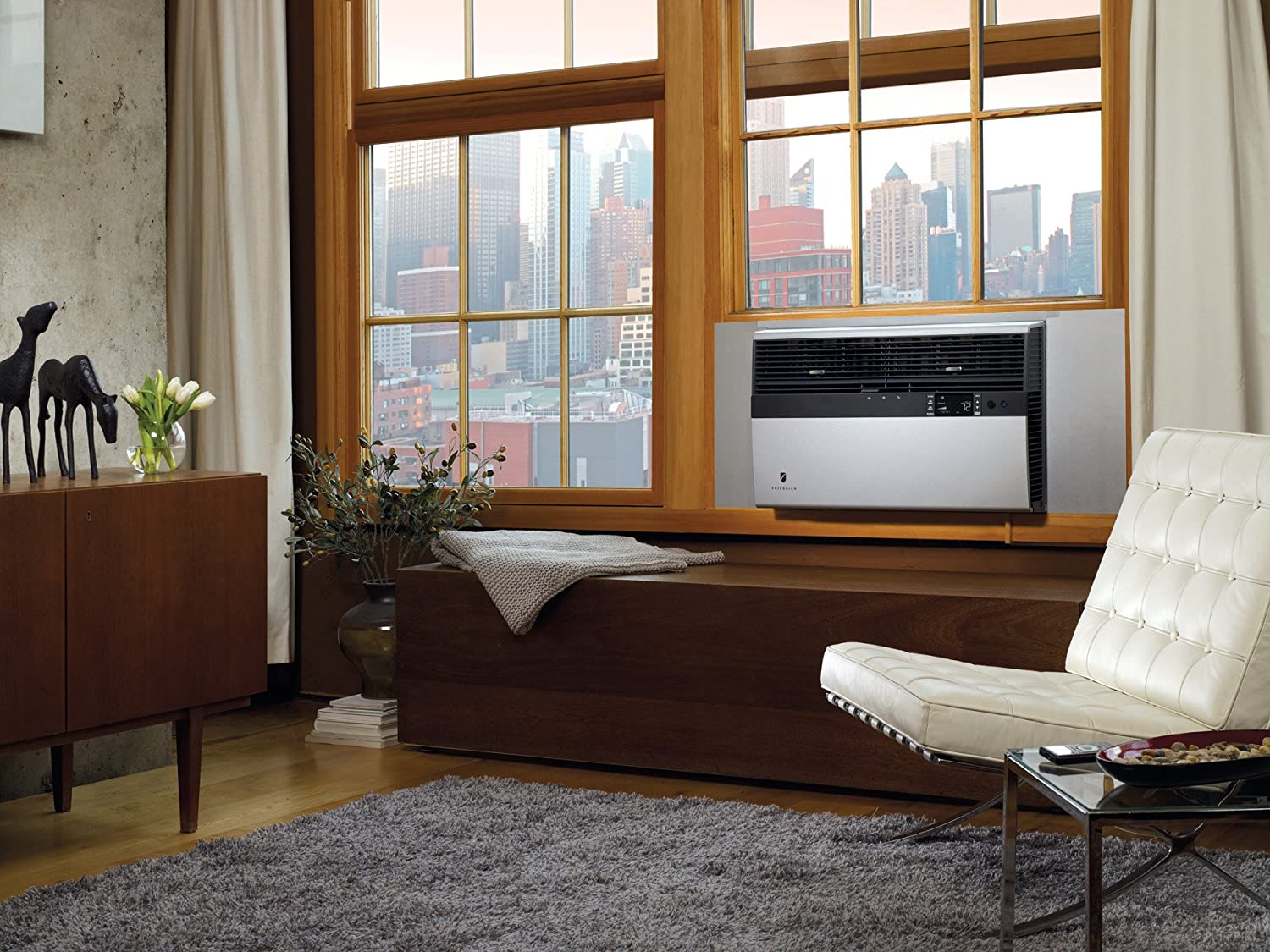
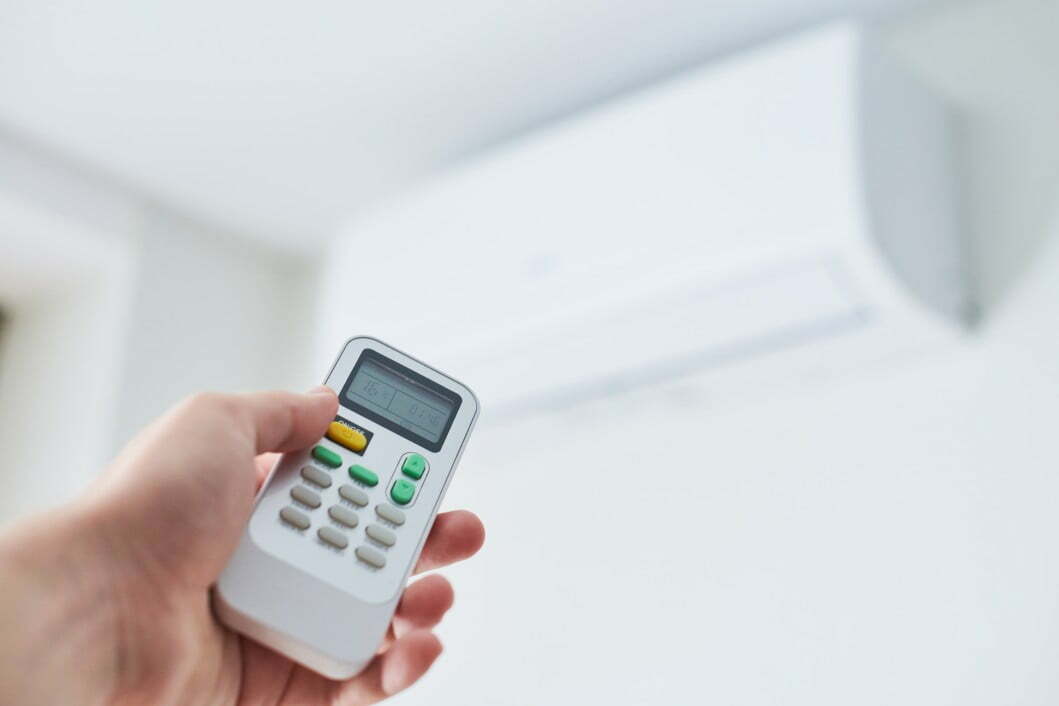
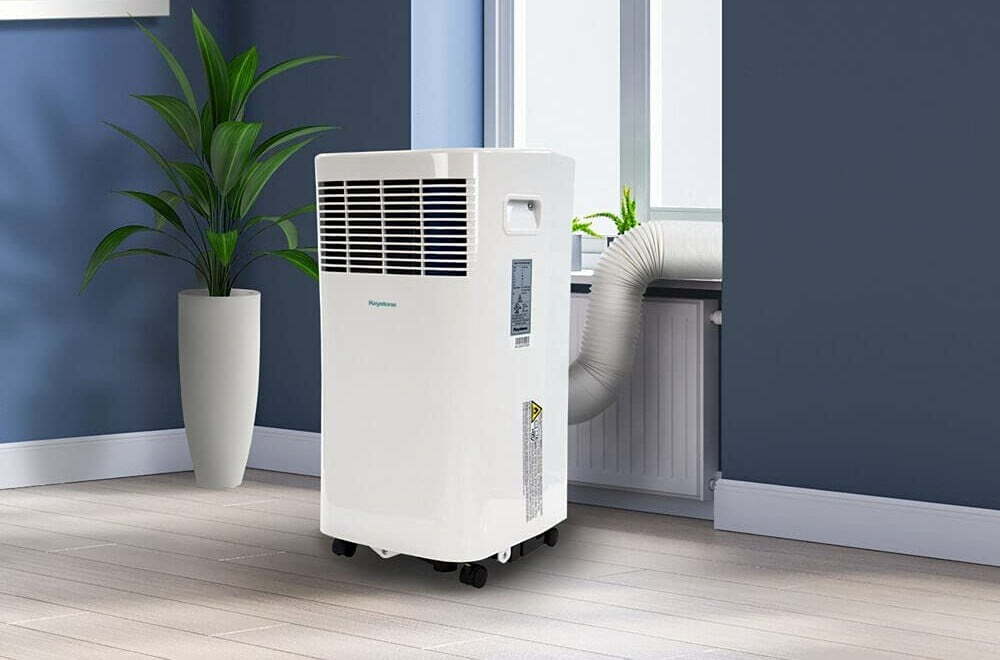
![Best Air Conditioners in [year] ([month] Reviews) 27 Best Air Conditioners in 2026 (January Reviews)](https://www.gadgetreview.dev/wp-content/uploads/best-air-conditioners-image.jpg)
![Quietest Through The Wall Air Conditioners in [year] 28 Quietest Through The Wall Air Conditioners in 2026](https://www.gadgetreview.dev/wp-content/uploads/quietest-through-the-wall-air-conditioner-image.jpg)
![Best 10000 BTU Air Conditioners in [year] 29 Best 10000 BTU Air Conditioners in 2026](https://www.gadgetreview.dev/wp-content/uploads/best-10000-btu-air-conditioner-image.jpg)
![Best 15000 BTU Air Conditioners in [year] 30 Best 15000 BTU Air Conditioners in 2026](https://www.gadgetreview.dev/wp-content/uploads/best-15000-btu-air-conditioner-image.jpg)
![Best 15000 BTU Window Air Conditioners in [year] 31 Best 15000 BTU Window Air Conditioners in 2026](https://www.gadgetreview.dev/wp-content/uploads/best-15000-btu-window-air-conditioner-image.jpg)
![Best 12000 BTU Air Conditioners in [year] 32 Best 12000 BTU Air Conditioners in 2026](https://www.gadgetreview.dev/wp-content/uploads/best-12000-btu-air-conditioner-image.jpg)
![Best Photocatalytic Oxidation Air Purifiers in [year] 33 Best Photocatalytic Oxidation Air Purifiers in 2026](https://www.gadgetreview.dev/wp-content/uploads/best-photocatalytic-oxidation-air-purifier-image.jpg)
![Best Ventless Portable Air Conditioners in [year] 34 Best Ventless Portable Air Conditioners in 2026](https://www.gadgetreview.dev/wp-content/uploads/best-ventless-portable-air-conditioner-image.jpg)
![Best Window Air Conditioners with Heat in [year] 35 Best Window Air Conditioners with Heat in 2026](https://www.gadgetreview.dev/wp-content/uploads/best-window-air-conditioner-with-heat-image.jpg)
![Best Inverter Air Conditioners in [year] 36 Best Inverter Air Conditioners in 2026](https://www.gadgetreview.dev/wp-content/uploads/best-inverter-ac-image.jpg)
![Best HEPA Air Purifiers in [year] 37 Best HEPA Air Purifiers in 2026](https://www.gadgetreview.dev/wp-content/uploads/best-hepa-air-purifier-image.jpg)
![Best Quiet Window Air Conditioners in [year] 38 Best Quiet Window Air Conditioners in 2026](https://www.gadgetreview.dev/wp-content/uploads/quiet-window-air-conditioner-image.jpg)
![Best Energy Efficient Window Air Conditioners in [year] 39 Best Energy Efficient Window Air Conditioners in 2026](https://www.gadgetreview.dev/wp-content/uploads/best-energy-efficient-window-air-conditioner-image.jpg)
![Best Quiet Portable Air Conditioners in [year] 40 Best Quiet Portable Air Conditioners in 2026](https://www.gadgetreview.dev/wp-content/uploads/quiet-portable-air-conditioner-image.jpg)
![Best 6000 BTU Air Conditioners in [year] 41 Best 6000 BTU Air Conditioners in 2026](https://www.gadgetreview.dev/wp-content/uploads/best-6000-btu-air-conditioner-image.jpg)
![Best 8000 BTU Air Conditioners in [year] 42 Best 8000 BTU Air Conditioners in 2026](https://www.gadgetreview.dev/wp-content/uploads/best-8000-btu-air-conditioner-image.jpg)
![Best Small Window Air Conditioner in [year] 43 Best Small Window Air Conditioner in 2026](https://www.gadgetreview.dev/wp-content/uploads/best-small-window-air-conditioner-image.jpg)
![Best 5000 BTU Air Conditioners in [year] 44 Best 5000 BTU Air Conditioners in 2026](https://www.gadgetreview.dev/wp-content/uploads/best-5000-btu-air-conditioner.jpg)
![Best Mini Split in [year] 45 Best Mini Split in 2026](https://www.gadgetreview.dev/wp-content/uploads/best-ductless-mini-split-air-conditioner-image.jpg)
![10 Best Portable Air Conditioners and Heaters in [year] 46 10 Best Portable Air Conditioners and Heaters in 2026](https://www.gadgetreview.dev/wp-content/uploads/best-portable-air-conditioner-and-heater-image.jpg)
